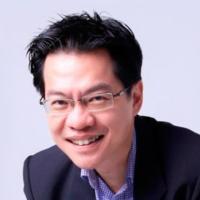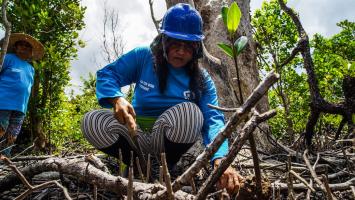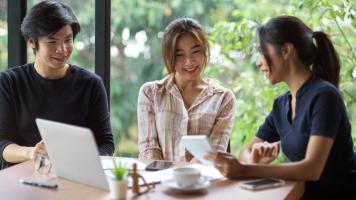Understanding the Equal Distribution of Tourism's Benefits

Director, Centre for Responsible Tourism

The tourism industry must give the matter of equal distribution of benefits important consideration as it is part of sustainable development. Photo credit: ADB.
The industry should look beyond economic aspects, writes Kevin Phun, director at the Centre for Responsible Tourism.
This article is published in collaboration with the Pacific Asia Travel Association.
The idea of equal distribution of benefits in tourism seems like a misunderstood and perhaps complicated matter. A 2020 report on the topic states that equity is a key principle of sustainable tourism that addresses fairness in access, use, and distribution of benefits from tourism development.
The tourism industry must give the matter of equal distribution of benefits important consideration as it is part of sustainable development. Another report states the issue of complexity in benefit-sharing and the importance of identifying all relevant stakeholders, and that benefit-sharing mechanisms evolve and adapt to unique situations.
Looking beyond economic aspects
Perhaps, we in tourism should develop a better understanding of the idea of equal sharing of tourism’s benefits, one that looks beyond economic aspects. When that happens, our ability to develop engagement with local communities and other stakeholders will be stronger.
The COVID-19 pandemic has changed many aspects of tourism, perhaps, including how tourism’s benefits should be understood and distributed. The pandemic has shifted the focus in tourism to one of managing negative impacts associated with overtourism and re-evaluating the notion of quality.
We need to stop harping on the need to ensure equal distribution of benefits, but to try to better understand what equal distribution actually means. It is a concept that is quite impractical in reality, a concept that if poorly understood, may create a situation where tourism’s wider benefits are not tapped and its tangible and intangible benefits not spread to a wider audience.
The better we understand how tourism’s benefits should be distributed, the better potentially we can engage tourism’s stakeholders. The focus is to be able to impact more people in tourism. Equal distribution is not everybody benefitting the same way, as that will never happen, with the benefits tourism brings being so wide.
Focusing on engagement
Distributing tourism’s benefits therefore should not have equality, but engagement as a focus. The focus is to see how the distribution of tourism’s benefits can enable more to benefit from tourism and to have stronger engagement. Stronger engagement potentially means success in using tourism to preserve local culture and heritage.
So why is the concept of equal distribution a poor concept? First, many of tourism’s benefits are intangible, and thus difficult to quantify. Focus on engagement will help overcome obstacles for certain stakeholders, in being able to benefit from tourism. Also, as tourism increasingly seeks to embrace ethical principles, a focus away from equal distribution of benefits is necessary, to enable tourism stakeholders to look at how tourism can and should operate to ensure minimal negative impacts.
The focus on broader engagement rather than striving for equal economic benefits potentially may itself create opportunities for economic diversification, something many destinations aim to achieve. Equal distribution of benefits should also be about non-economic benefits, as tourism is capable of enhancing local peoples’ lives in many ways. The idea of benefits being largely economic in nature, can be widened, in the efforts to identify ways to improve distribution of benefits, particularly by improving engagement in tourism of the stakeholders.
There could (or maybe should) be some sort of a window of opportunity created by the pandemic to improve the ways certain stakeholder groups engage in tourism, so that the benefits obtained can better meet local peoples’ specific needs and help to address sustainable development objectives.
The article is reposted with permission from Centre for Responsible Tourism, a member of the Pacific Asia Travel Association that provides evidence-based research and analysis to governments, policymakers, tourism businesses, nonprofit organizations, and international agencies to increase the positive global impact of responsible tourism.

Kevin Phun
Director, Centre for Responsible TourismKevin Phun is an occasional practitioner in responsible tourism and a tutor in the discipline in various colleges in Singapore, as well as an affiliate lecturer at a few Australian and United Kingdom university programs.

Pacific Asia Travel Association (PATA)
The Pacific Asia Travel Association (PATA) connects public and private organizations for the responsible development of the travel and tourism industry.


